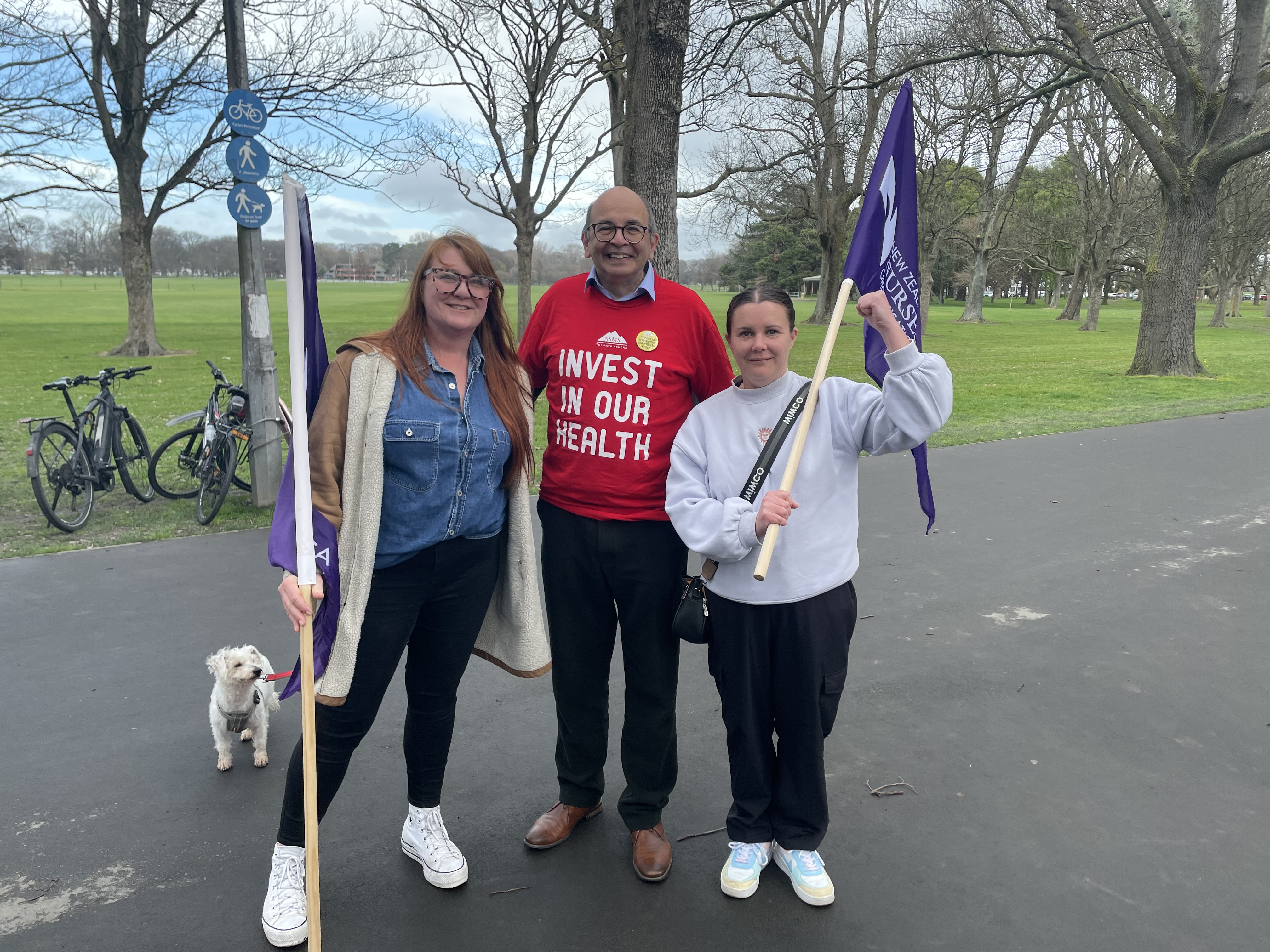
3 minute read
ELECTING TO DO BETTER
JULIAN VYAS, ASMS PRESIDENT
At the time of writing, we are balloting members about taking industrial action. Due to the ‘time lag’ between writing and publication, it is too hard for me to comment on strike action as, by the time you read this, the fight will have moved on.
Instead, I will look to October’s election. A review of the webpages of the five political parties in Parliament shows that none of them acknowledge the immediate senior dental and medical workforce crisis that exists.
Labour talks of increasing doctor numbers, National says they will open a third medical school, ACT will speed up registration processes, and the Greens talk of “meeting union demands for fair wages, pay parity and reasonable workload and conditions that support the well-being of health workers”.
Otherwise, there is nothing about the current situation. No party openly acknowledges how bad the current problems are and that, if left unchecked, they are an existential threat for the public health sector.
Our effectiveness at doing our jobs is predicated on our honesty. Our patients must be able to trust we are always truthful with them. Rudolph Virchow famously said, “Politics is nothing more than medicine on a grand scale.” I contend this aphorism not only relates to the goals to tackle personal and societal ills, but also relates to how politics should follow a ‘medical paradigm’ for sharing information.
Often doctors must give patients bad news about poor prognosis or treatment complications because patients have a right to be fully informed about their health. In the same way, New Zealanders should not be misled about their health system. Promises of fixes which ignore reality are nothing more than snake oil quackery.
At the same time, Te Whatu Ora must be open and transparent with its workforce, and not gloss over shortcomings. We have seen the continued ‘non-publication’ of the Pulse staff satisfaction survey. In addition, there have been two recent reviews of systemic failures at MidCentral and Southern districts. In both these reports, common findings have included recognition of a workplace culture neither accepting nor reacting to criticism. Rather, there exists a state of chronic denial of concerns, and disdain shown to those who raise them.
When senior clinicians are regularly subjected to this behaviour, it is no surprise that a state of suspicion and distrust develops between senior clinicians and our employer. Not only is it bad for us (and our managers) to work in such an environment, but sustained failure to recognise clinicians’ worries inevitably leads to poorer outcomes.
What we urgently need is a ‘reset’ of the current dysfunctional relationship between workers and employer in our health system. Te Mauri o Rongo, the proposed Health Charter should be an excellent starting point, but we still await its completion, and approval, by Government.
I realise properly embracing employer–employee collaboration may be difficult for Te Whatu Ora, but it seems patently obvious to me that Te Whatu Ora and the medical workforce both want the same outcome of improved patient care. The energy we expend to defend ourselves from poor employer practices could be far better spent on creating the means to improve patient outcomes.
We shall explore ideas to ‘reset the agenda’ at the annual conference in November. I encourage as many of you as possible to attend. It is through hearing your ideas and experiences that ASMS can best improve the terms and conditions we work under.


